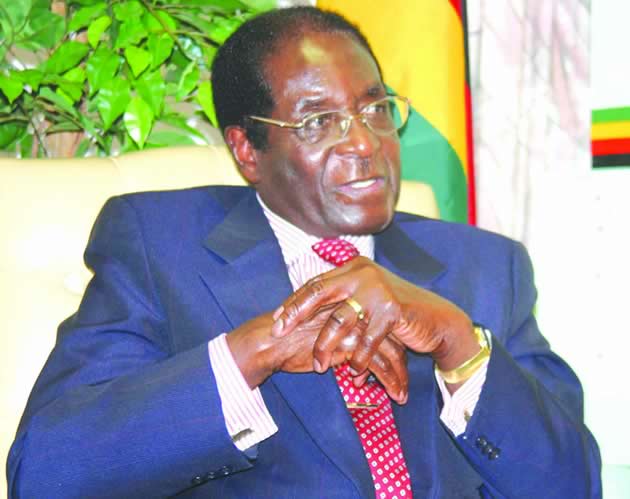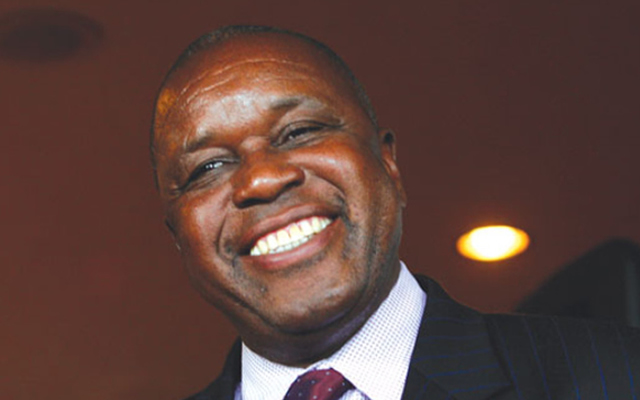Act on President’s call

Victoria Ruzvidzo Business Focus
Zimbabweans living outside the country should take President Mugabe’s passionate plea seriously and actively participate in turning the economy around. It is not a secret that the economy is presently confronted with immense challenges but these are surmountable if everyone pulls in one
direction.
Non-resident Zimbabweans are obviously affected both directly and indirectly by the state of the economy hence they should feel obliged to help with solutions to turn the country’s fortunes around.
Not that they have not been doing something already but that they need to up their game and be actively involved in programmes and projects that will bring lasting solutions to the challenged economy.
Speaking to Zimbabweans based in Addis Ababa this week, President Mugabe implored Zimbabweans living abroad to partner Government in rejuvenating the economy.
“Ethiopia has managed to do a lot of construction and improvement because a lot of its people are in the Diaspora.
“It is also happening in other countries like Cape Verde Islands and I want to urge our people to come together.
“A Zimbabwean is a Zimbabwean whether ZANU-PF or MDC. This is one area we cannot be separated from each other; an area where we are Zimbabweans together,” said President Mugabe.
This passionate plea should be met with a positive response that will see a systematic intervention by Zimbabweans in the Diaspora.
In his January 2015 Monetary Policy Statement, Reserve Bank of Zimbabwe Governor Dr John Mangudya estimated that at least $1,7 billion in Diaspora remittances was coming to Zimbabwe annually. This translated into more than 50 percent of export earnings.
“This sector is too important to ignore,” said Dr Mangudya.
“To this end, Government and the Reserve Bank are putting in place measures to promote investment from the Diasporans, over and above remittances.
“Through Homelink’s newly set up business unit, Investlink, the Reserve Bank is spearheading investment needs of the Diasporans through integration with economic activities in the country.”
Dr Mangudya said the Diasporans would syndicate, form consortiums and pool resources for investment in such sectors as:
Energy solutions through mini-hydro power projects.
Tourism sector development through the Theme Parks recently announced by the Tourism Minister.
Agricultural sector, particularly irrigation and horticulture for the export markets as a way of harnessing foreign currency.
Various manufacturing sub-sectors, including small-scale and large-scale mining where the Diasporans, as Zimbabwean ambassadors, are expected to exploit provisions of the Indigenisation Policy and partner with foreigners in these sectors.
Industry in general through the Zimbabwe Investment Authority (ZIA), as well as
Trading on the Zimbabwe Stock Exchange (ZSE).
The prevalence of high interest rates obtaining in the country also presented a great opportunity for the Diasporans to invest in their country and obtain investment rates higher than those obtaining in their countries of temporary residence.
Indeed it is through such avenues that the Diasporans can really make a huge impact on the economy.
The fact that remittances already account for more than 50 percent of export earnings is telling.
We hope that the Government and the central bank have already begun to put in place the various facilities and schemes requisite for the Diaspora’s active involvement in the economy.
The Government and the central bank will need to create active channels of communication dedicated for the Diasporans strictly.
Research has shown that in other countries governments have created ministries whose mandate is to engage the Diaspora in terms of what the constituency can do for the country and conversely how government can tackle concerns by their non-resident nationals.
Obviously such a strategy ensures a buy-in from both sides as they partner each other in the development process.
The book entitled “Closing the Distance: How Governments Strengthen ties with their Diasporas” which can be accessed from http://www.migrationpolicy.org/research/closing-distance-how-governments-strengthen-ties-their-diasporas, reviews the objectives and activities of 45 diaspora-engaging institutions in 30 developing countries, which shows the various ways governments choose to institutionalise their relations with the diaspora.
It notes that the institutions they have created occupy different levels of government and exhibit diverse priorities and degrees of organisation.
For instance, some are concerned only with their citizens abroad while others specifically target permanent residents, naturalised citizens, and second and later generations.
Countries such as Mexico, China, and the Philippines have multiple institutions and represent diasporas at various levels of government.
In some cases, national bodies established to deal with Diaspora issues are based in destination countries, as well as countries of origin. Among the countries studied, three types of bodies emerge: government institutions at home, consular networks and quasi-government institutions.
In this case Zimbabwe can adopt a strategy that best suits its terrain as it seeks to maximise on the benefits of its “scattered seeds” as Diasporans are often referred to.
Studies have shown that Africa’s growth and development has largely been propelled by its Diaspora, hence the need for Zimbabwe to sharpen its focus on that constituency as it implements Zim-Asset.
Financial remittances from the Diaspora help alleviate poverty, foster economic development, promote savings mobilisation, provide emergency aid and facilitate productive investments, among other factors.
In terms of business assistance, those in the Diaspora can enter into agreements with investors in their respective countries of residence with the intention of setting up joint ventures back home.
This fosters transfer of skills and technology and availability of financing facilities to grow business, generate wealth and create employment.
They can also promote exports from their respective countries of origin while in other cases Diasporans work with various NGOs and charity organisations who then help direct resources back home.
Therefore, Zimbabwe, as with other developing countries, has the potential to immensely benefit from its Diaspora even in terms of developing social sectors such as health and education.
The President’s call will, therefore, need to be followed up with concrete action by the various arms of Government and its partners.
In God I Trust!
- Feedback: [email protected]; WhatsApp messenger: 0772129972










Comments